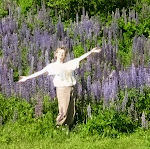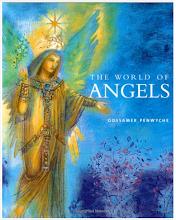Sunday, April 21, 2013
First Person Imperfect
Sometimes my friends really bug me. Now that isn't a very nice thing to say about my friends, is it? But I thought I'd get it out there and get your attention. Now that I have, I will add that I know full well that I am quite irritating at times as well. But all of that doesn't mean I don't care for my friends very much, and I am blessed with more than a few. True friends still care for each other despite their imperfections. Nobody is perfect. If there were such a person, they wouldn't be human or of this world.
I've been thinking about human frailty a lot recently, and was dwelling on that very subject when I bumped into my dear friend Margaret on the street the other day. Margaret is a highly intelligent, aware person of high ethical and moral standards whom I deeply respect and admire. (She'd also be the first person to say she's not perfect.) When I met Margaret she was with her loyal partner of many years, Patrick. Margaret and I spoke very briefly about a local hot issue regarding the cutting down of ancient oaks in the
neighbourhood, which led very quickly to the mention of Gandhi on my part. (I can't remember the context, but it was something to do with Margaret's activism.) Patrick, who is a history buff and well-informed on many subjects, made a point of mentioning that Gandhi was a deeply flawed person. I knew that already, and said so. In fact, I'm accustomed to highly politicised, well-informed people responding in that manner to my high regard for Gandhi. Patrick is by no means the first person I've heard say that. (I've also noticed that people who are quick to point out that human heroes often have clay feet tend not to have heroes, although I don't know Patrick well enough to say that's true about him.) Nonetheless, his comment set me to thinking yet again about hero-worship, saints, and all the good and great people who are flawed because they're not descended from the gods.
Someone like Gandhi, whose achievements are monumental, is indeed well known for his failings. (I won't go into them here because that's not what this blurb is about, but some careful reading and googling will reveal the good and the bad.) I've also noticed that individuals who achieve greatness after overcoming enormous obstacles and opposition tend to have flaws that are decidedly deeper and certainly more scrutinised, which is probably a good thing.
Many years ago, when I was in graduate school I directed a production of Murder in the Cathedral. I had to keep reminding the talented young actor playing the principal role of Thomas Beckett not to look as if he were Jesus walking on water - careful, slow, and not quite in touch with solid earth. But I understood why the young actor chose to portray Beckett in that manner. After all, he was a saint. He was a martyr. Saints and martyrs who die for or because of their beliefs aren't mere and lowly humans, right? Wrong. They eat, belch and shit just like the rest of us. And they make mistakes - usually much bigger mistakes than ordinary humans do. In fact, it's often their mistakes that make them martyrs. So I had to keep reminding my leading actor to portray Beckett as a real human being, subject to all the feelings and faults the rest of us are.
My late brother Norman, who died very young a long time ago now, was Hare Krishna. (Hare Krishna is a sect of Hinduism introduced to the west by Bhaktivedanta Swami Prabhupada in the sixties.) Whenever I mentioned my brother to his fellow devotees while he was alive and for a long time after his death, the response was always the same; he was highly regarded and considered to be a deeply pious and virtuous person. But Norman's deep virtue wasn't unblemished. Although his zealousness softened considerably by the time he died, I was troubled to see a gentle soul become so rigid in his beliefs, which for all intents and purposes were the same as Gandhi's - Hindu.
I remember Norman's attitude towards our sweet, galumphing dog, Oberon, who my brother had trained and loved, changed completely after he joined the movement. After the first two isolating years at the temple, Norman began to have contact with our family again, but it was obvious he regarded Oberon as a
lesser being and refused to touch him, even though Oberon was overjoyed at seeing his beloved master again. Despite his strict vegetarian diet and austere life, all in the name of not harming fellow creatures, Norman's beliefs weren't entirely inclusive and accepting. Even before his conversion, Norman was placid and moderate, but his frailties became even more pronounced as he became more devoted to his path. In a sense, Norman was a martyr to his beliefs, too. If he'd had the melanoma that killed him diagnosed early enough, he could have saved his own life. The early symptoms were clearly there, but Norman didn't recognise them because his beliefs blinded him from so much of the real world.
Norman may not have been a great man in the true sense of the word, but he was certainly a very good one. His flaws and mistakes were proportionate to his goodness. And he's still a hero to me.
I like to think my hero-worship is reasonable and objective. So yes, I have friends who sometimes annoy me, as I do them. I also admire and respect some people who others consider to be freaks and weirdos. (Norman was one of those.) It's a lot harder to love and revere real people, warts and all, than it is a goddess or god. I once met a living goddess (see "Oh My Goddess, " 12/12/12) and the reason I venerate her as I do is not just because of her divinity, but because of her very real, imperfect, and deeply passionate humanity. May we all wear our failings so well.
Namaste.
- G.P.
I've been thinking about human frailty a lot recently, and was dwelling on that very subject when I bumped into my dear friend Margaret on the street the other day. Margaret is a highly intelligent, aware person of high ethical and moral standards whom I deeply respect and admire. (She'd also be the first person to say she's not perfect.) When I met Margaret she was with her loyal partner of many years, Patrick. Margaret and I spoke very briefly about a local hot issue regarding the cutting down of ancient oaks in the
neighbourhood, which led very quickly to the mention of Gandhi on my part. (I can't remember the context, but it was something to do with Margaret's activism.) Patrick, who is a history buff and well-informed on many subjects, made a point of mentioning that Gandhi was a deeply flawed person. I knew that already, and said so. In fact, I'm accustomed to highly politicised, well-informed people responding in that manner to my high regard for Gandhi. Patrick is by no means the first person I've heard say that. (I've also noticed that people who are quick to point out that human heroes often have clay feet tend not to have heroes, although I don't know Patrick well enough to say that's true about him.) Nonetheless, his comment set me to thinking yet again about hero-worship, saints, and all the good and great people who are flawed because they're not descended from the gods.
Someone like Gandhi, whose achievements are monumental, is indeed well known for his failings. (I won't go into them here because that's not what this blurb is about, but some careful reading and googling will reveal the good and the bad.) I've also noticed that individuals who achieve greatness after overcoming enormous obstacles and opposition tend to have flaws that are decidedly deeper and certainly more scrutinised, which is probably a good thing.
Many years ago, when I was in graduate school I directed a production of Murder in the Cathedral. I had to keep reminding the talented young actor playing the principal role of Thomas Beckett not to look as if he were Jesus walking on water - careful, slow, and not quite in touch with solid earth. But I understood why the young actor chose to portray Beckett in that manner. After all, he was a saint. He was a martyr. Saints and martyrs who die for or because of their beliefs aren't mere and lowly humans, right? Wrong. They eat, belch and shit just like the rest of us. And they make mistakes - usually much bigger mistakes than ordinary humans do. In fact, it's often their mistakes that make them martyrs. So I had to keep reminding my leading actor to portray Beckett as a real human being, subject to all the feelings and faults the rest of us are.
My late brother Norman, who died very young a long time ago now, was Hare Krishna. (Hare Krishna is a sect of Hinduism introduced to the west by Bhaktivedanta Swami Prabhupada in the sixties.) Whenever I mentioned my brother to his fellow devotees while he was alive and for a long time after his death, the response was always the same; he was highly regarded and considered to be a deeply pious and virtuous person. But Norman's deep virtue wasn't unblemished. Although his zealousness softened considerably by the time he died, I was troubled to see a gentle soul become so rigid in his beliefs, which for all intents and purposes were the same as Gandhi's - Hindu.
I remember Norman's attitude towards our sweet, galumphing dog, Oberon, who my brother had trained and loved, changed completely after he joined the movement. After the first two isolating years at the temple, Norman began to have contact with our family again, but it was obvious he regarded Oberon as a
lesser being and refused to touch him, even though Oberon was overjoyed at seeing his beloved master again. Despite his strict vegetarian diet and austere life, all in the name of not harming fellow creatures, Norman's beliefs weren't entirely inclusive and accepting. Even before his conversion, Norman was placid and moderate, but his frailties became even more pronounced as he became more devoted to his path. In a sense, Norman was a martyr to his beliefs, too. If he'd had the melanoma that killed him diagnosed early enough, he could have saved his own life. The early symptoms were clearly there, but Norman didn't recognise them because his beliefs blinded him from so much of the real world.
Norman may not have been a great man in the true sense of the word, but he was certainly a very good one. His flaws and mistakes were proportionate to his goodness. And he's still a hero to me.
I like to think my hero-worship is reasonable and objective. So yes, I have friends who sometimes annoy me, as I do them. I also admire and respect some people who others consider to be freaks and weirdos. (Norman was one of those.) It's a lot harder to love and revere real people, warts and all, than it is a goddess or god. I once met a living goddess (see "Oh My Goddess, " 12/12/12) and the reason I venerate her as I do is not just because of her divinity, but because of her very real, imperfect, and deeply passionate humanity. May we all wear our failings so well.
Namaste.
- G.P.
Subscribe to:
Post Comments (Atom)








No comments:
Post a Comment